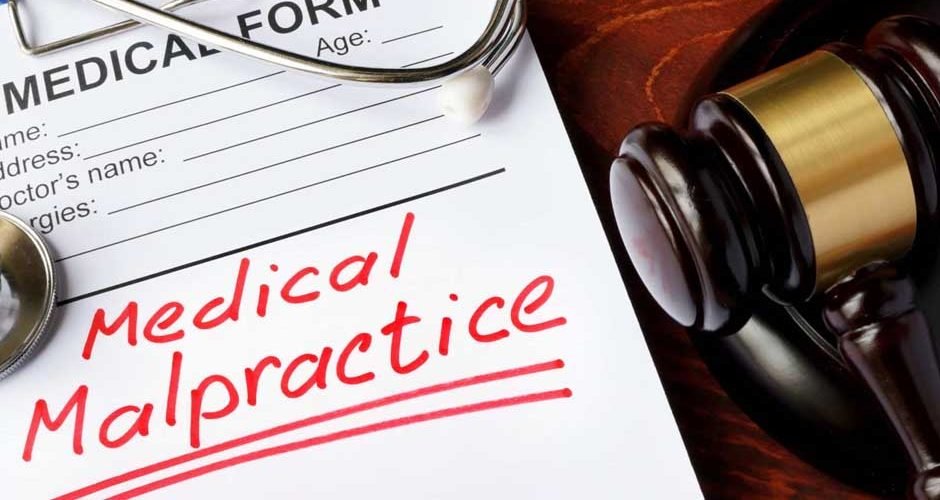Filing a medical negligence case is undoubtedly a complex and challenging situation. It’ also going to be an incredibly emotional process. It is such an upsetting and unsettling realisation when you discover that the people who you have trusted to look after you have made a mistake that has caused you harm. Whether you’ve experienced substandard medical care, misdiagnosis, or surgical errors, understanding the intricacies of pursuing a medical negligence claim is crucial.
In this comprehensive guide, we’ll explore everything you need to remember if you are considering filing a medical negligence case in the UK. This article aims to provide an authoritative and expert perspective to empower individuals navigating the intricate terrain of medical negligence claims.
Table of Contents
Understanding The Foundations of Medical Negligence
To initiate a medical negligence case, you need to have a clear understanding of what medical negligence actually means. In the UK, medical negligence occurs when a healthcare professional’s standard of care falls below what is reasonably expected and results in harm to the patient. You need to establish the presence of duty of care, a breach of that duty, and the harm caused if you want to build a strong medical negligence case.
Gathering Comprehensive Evidence
Successful medical negligence claims rely heavily on the strength of the evidence presented. To bolster your case, gather comprehensive evidence, including medical records, witness statements, and expert opinions. These elements contribute to a thorough understanding of the circumstances, helping to establish the healthcare professional’s breach of duty and its impact on your well-being. This is particularly important if you are taking your case to a solicitor. They are going to want to have as much evidence on their side as they can, so don’t dismiss anything as too small or insignificant. Something as simple as a voicemail, email or text could have far greater importance than you realise.
Navigating The Complex Legal Landscape
Navigating the legal landscape surrounding medical negligence can be daunting. You’re going to need to do a lot of research and understand exactly what the legal processes involved in filing a claim are. This includes the pre-action protocol, issuing a claim, and potential court proceedings. Getting legal advice early in the process is the best thing to do, as solicitors who have special expertise in medical negligence can guide you through the intricacies of the legal system.
You Are Going To Need Expert Solicitors
One pivotal aspect of pursuing a medical negligence case is the involvement of expert solicitors. These legal professionals possess the knowledge and experience required to navigate the complex terrain of medical negligence claims. From evaluating the viability of your case to representing you in court, expert solicitors play a crucial role in ensuring your rights are protected and that you receive fair compensation for the harm you’ve endured. Look for medical negligence solicitors who can demonstrate their expertise and can show you that they have had a lot of success in the past. The medical negligence team at Hugh James has won awards for their excellence and their results speak for themselves. They understand how difficult and emotional this issue can be, and their staff has a range of experience to help you to get the result you deserve.
Establishing The Breach Of Duty
Central to any medical negligence claim is demonstrating that the healthcare professional breached their duty of care. This involves proving that the standard of care provided fell below what is expected in their field. Expert testimony, often provided by medical professionals in the same field, becomes instrumental in establishing the breach of duty.
Proving Causation
Connecting the breach of duty to the harm suffered requires establishing causation. It’s not enough to demonstrate that a breach occurred; you must prove that this breach directly caused the harm you experienced. Expert opinions and a thorough examination of the medical facts play a pivotal role in establishing causation. This will be something that your legal team will be focused on as they do their investigation.
Understanding The Types Of Medical Negligence
Medical negligence can manifest in various forms, from surgical errors to misdiagnosis. Understanding the specific type of negligence that you’ve experienced is vital. Whether it’s obstetric negligence, surgical negligence, or failures in diagnosis, recognising the category of negligence informs the approach your legal team will take in building and presenting your case. It’s not just a big umbrella term, it’s far more complicated than that. Again, this is why it’s so important to find an excellent solicitor.
The Importance Of Timeliness In Filing Claims
Medical negligence claims are subject to strict time limits, known as the statute of limitations. It’s essential to be aware of these limitations and take prompt action. Initiating a claim within the prescribed time frame ensures that your case is admissible, and it enhances the prospects of gathering fresh and reliable evidence. It’s also important as your own evidence and memories of the events are going to be easier to access closer to the event in question.
Considering Alternative Dispute Resolution (ADR) Options
Alternative dispute resolution (ADR) methods such as mediation or arbitration offer different options for resolution. ADR can be less adversarial and time-consuming, providing an opportunity for both parties to negotiate a settlement outside of court. This may not be what you want to hear, but court cases are costly and it may work out better for you to settle out of court.
Calculating Damages And Compensation
Determining the extent of damages and the compensation you are entitled to is a complex process. Factors such as loss of earnings, medical expenses, and future care needs are considered. Expert solicitors play a vital role in accurately assessing damages and negotiating fair compensation on your behalf.
Managing The Emotional Toll
Filing a medical negligence claim can be emotionally taxing. Managing the stress and emotional toll is crucial for your overall well-being. Seeking support from friends, family, and potentially counselling services can provide invaluable assistance during this challenging time. Don’t try and take this on all by yourself.
Considering The Impact On Future Care Needs
A successful medical negligence claim should consider the long-term impact on your health and well-being. If your injuries result in ongoing care needs, your solicitors should factor this into the compensation calculations. Ensuring that your future care needs are adequately addressed is essential for your continued well-being.
Being Prepared For The Possibility Of Court Proceedings
While many medical negligence claims are resolved outside of court, being prepared for the possibility of court proceedings is crucial. Your solicitors will guide you through the process, preparing a robust case to present in court if necessary.
So Remember
Filing a medical negligence case is a multifaceted and intricate process that demands a comprehensive understanding of the legal and medical landscapes. By grasping the foundations of medical negligence, gathering robust evidence, and enlisting the support of expert solicitors, individuals can navigate this challenging terrain with confidence. Recognizing the importance of timely action, alternative dispute resolution options, and the emotional toll involved ensures a holistic approach to pursuing justice in cases of medical negligence. This guide aims to empower individuals with the knowledge and insights needed to make informed decisions and navigate the complexities of medical negligence claims effectively.





